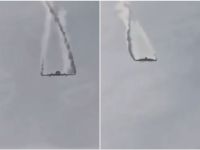Former US secretary of state George Shultz, an adviser to Republican presidential nominee George W. Bush, voiced indignation Wednesday over reports that Moscow violated a secret US-Russian pact on ending Russian arms sales to Iran.
Shultz was commenting on the 1995 deal signed by US Vice President Al Gore and former Russian prime minister Viktor Chernomyrdin, in a telephone interview with members of the press.
"Those sales should have caused, under the law, sanctions. They didn't because an agreement was made between the vice president and the Russian premier," Shultz said. "I think that it's a very questionable thing to do...this is a very serious matter."
Asked whether the revelations made earlier this month would hurt Gore's credibility and hamper the Democratic vice president's White House bid, Shultz said: "we were very careful to state the facts and express our indignation and concern about our national security interests."
In exchange for Russia's acceptance of US demands to stop selling weapons to Iran, Washington promised not to impose sanctions on Moscow. The sanctions were required under a 1992 law targeting countries that sell sophisticated weapons to nations designated by the State Department as sponsors of terrorism.
The New York Times reported earlier this month that Moscow did not comply fully with the pact as it continued to sell arms, including a submarine and tanks, to Iran past an agreed December 31, 1999 cut-off date.
However, Moscow did not sign any new arms sales contracts with Tehran, which made the pact effective, State Department officials told the Times.
State Department official John Barker, testifying before a US Senate Foreign Relations subcommittee on Wednesday, insisted that "(our) negotiating strategy with Russia on sensitive national security matters is being compromised by discussing these matters in public."
"This will put the next administration, no matter who wins the election, in a very difficult position for future diplomacy," Barker said – WASHINGTON (AFP)
© 2000 Al Bawaba (www.albawaba.com)







